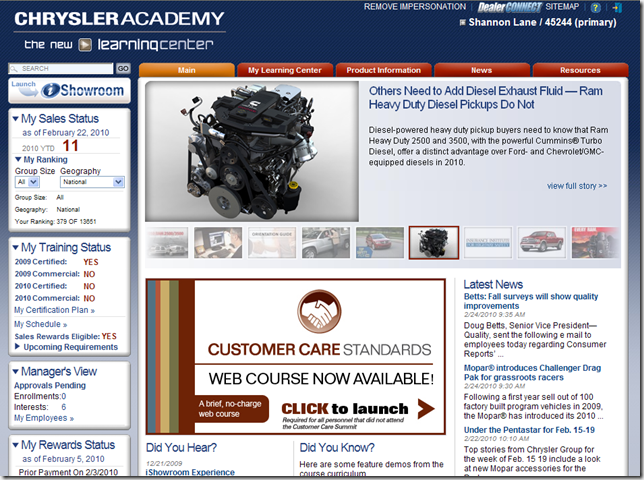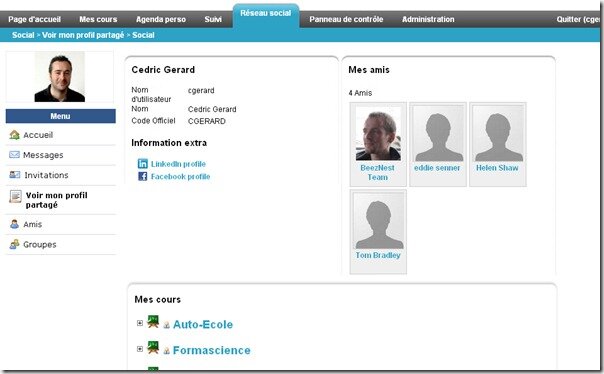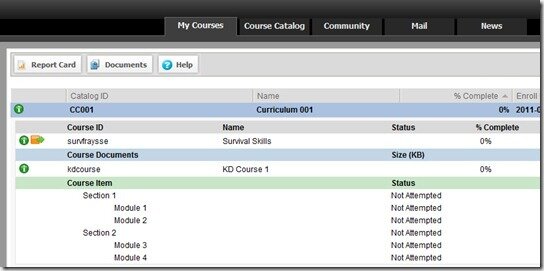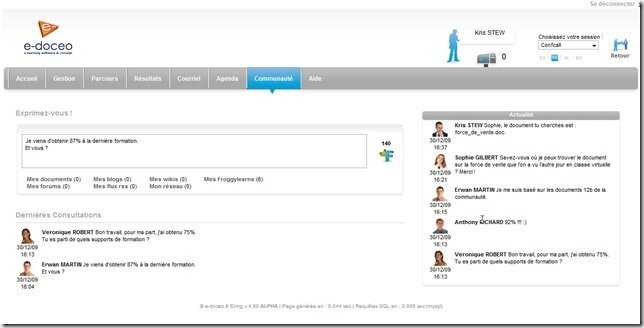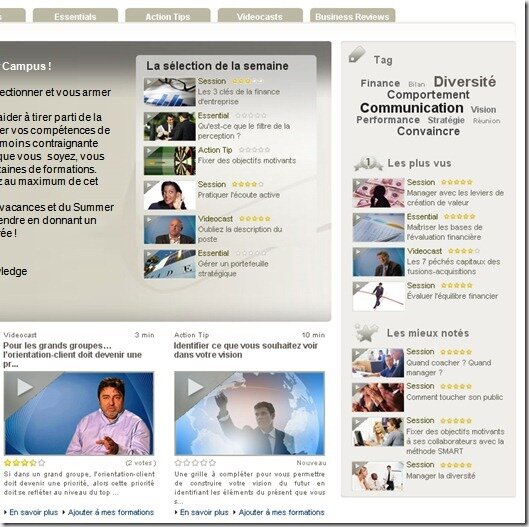Today, I am glad to welcome Latitude Learning CEO – Jeff Walter – for a new LMS review focused on Social Learning…
Tools and features
Jeff Walter (JW): The Latitude Learning LMS leverages Web 2.0 tools to create an environment where the community can easily create and access social capital. An LMS designed for a global OEM utilizes all of the social media outlets to encourage dialogue and create a robust and current knowledge repository.
It is currently using some of these capabilities to conduct dealer polls and surveys, manage a one-way Service Technician blog, manage a two-way Sales blog, and provide position-specific news through RSS feeds. It includes the following web 2.0 capabilities:
- Blogs: supports one-way and two-way, open and moderated blogs
- Activity streams and micro-messaging: Status updates, microblogs and user activity has become the de facto standard for sharing information quickly
- Forums, Threaded Discussions and Message Boards: provides a means for user-to-user conversations
- Ratings, comments and reviews: enables user accessible user feedback
- Wikis: lets multiple users collaborate on the same content using a simple, intuitive wiki editing interface
- Social CRM: capitalize on the social tools of the Web, including Twitter, LinkedIn and Facebook
- Polls and Surveys: encourage interaction with your visitors with online polls and surveys for market research, to gauge customer satisfaction and for other feedback. Generate a poll or survey easily with a simple form creation wizard.
- Group spaces: group Spaces give community members with similar interests a place to collaborate online and share ideas and information.
- Social Bar: connect your content to the social web; lets users share content out to Twitter, LinkedIn Facebook, YouTube and more.
- Tag Clouds: tag clouds are a view of user-created tags on users, groups, and content. As content authors apply free-form tags, and the Tag Cloud will display all the tags across the community, the more popular the tag, the larger the font.
Screenshot
Integration Capabilities
JW: The Latitude LMS leverages the power of social media platforms such as Twitter, LinkedIn and Facebook to enhance how the client markets, sells and provides support to customers. The Social CRM connects external customer conversions to internal sales, marketing, support, and product development processes to transform and increase business productivity.
The Social Bar allows users to share content and rate the relevance for learners through media such as Twitter and Facebook.
Each of the social media platforms can collect and participate in conversations within the LMS without launching each individual application.
Use cases
JW: The OEM staff and suppliers currently using the LMS are finding they are easily able to use practical solutions to common challenges. For example, a service technician in California might discover an easy way to adjust the brakes in a vehicle. This same information could be accessed by a service technician in another state or country.
Hosting a weekly poll allows management to gauge learner sentiment on a specific issue – and enable the staff to feel as if they have voice in the organization.
Monitoring Tweets and Facebook entries allows the customer service staff to quickly respond to problems and mitigate any potential bad publicity that could result from a disgruntled customer.
Other information
JW:
1) Studies of organizations with large sales and service partner networks indicate that certification-based training and social capital are the two largest discriminators between high and low performing partners. The Latitude Learning LMS has a sophisticated certification engine to manage global, high-stakes certification programs.
2) The Latitude Learning LMS was recently named a bronze award winner for Best Use of Web 2.0 Tools for Learning from Brandon Hall Research. The award was presented at eLearning Guild’s DevLearn|10 conference.


